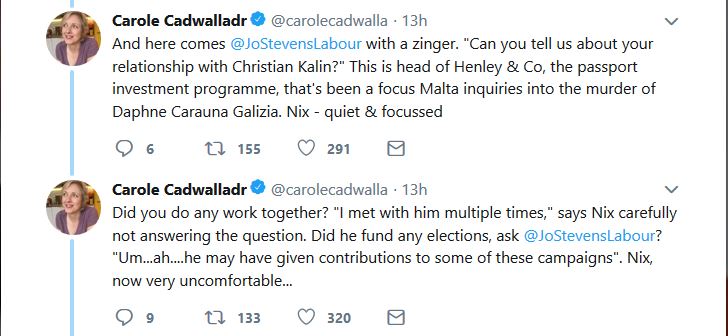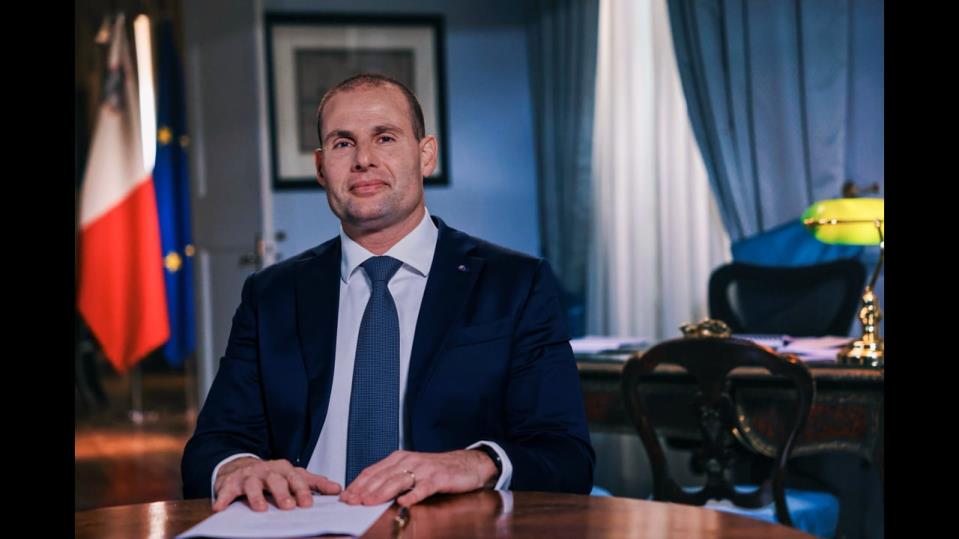The connections between Joseph Muscat’s Labour Party, Cambridge Analytica and Henley and Partners are shrouded in mystery but a bleak picture is slowly taking shape.
In a post dating back to November 2013, some seven months after Joseph Muscat’s Labour Party landslide victory, Daphne Caruana Galizia had hinted at the involvement of Cambridge Analytica’s parent company SCL Elections in that year’s general election.
“SCL Elections is an ‘election services’ company registered in Britain, with close connection to Henley & Partners. It claims to have never lost an election on which it worked, but with the exception of claims about three British election campaigns, all those elections appear to have been in the third world,” Caruana Galizia had written.
In her inimitable style, Caruana Galizia said that the Labour Party’s slick campaign made use of “third-world tactics (hysterical appeal to the emotions rather than to the rational mind) using first-world technology.”
Then in September 2017, just a few weeks before her brutal assassination, Caruana Galizia wrote that then PN leadership hopeful Adrian Delia “spells the destruction of the opposition, which is precisely what Joseph Muscat and Keith Schembri want, and what they have planned out long-term with consultancy advice from Cambridge Analytica.”
Both posts came way before Cambridge Analytica’s data mining was exposed by Christopher Wylie, a former employee turned whistleblower.
In March of this year Wylie exposed how the data analytics firm used personal information harvested from tens of millions of Facebook users without permission to build a system that could target US voters with personalised political advertisements based on their psychological profile.
Then Channel 4 secretly filmed shamed Cambridge Analytica CEO Alexander Nix boasting of using manufactured sex scandals, fake news and dirty tricks to swing elections around the world.
Following Cambridge Analytica’s public implosion, questions on the company’s links to Malta’s cash-for-passports concessionaires Henley and Partners resurfaced, as did questions on whether Labour made use of Cambridge Analytica’s services.
Blogger Manuel Delia alleged that Cambridge Analytica had shown interest in the Maltese elections in 2013 but both Labour and the Nationalist Party have denied ever contracting the British firm’s services.
The Shift News has confirmed that the PN did not use Cambridge Analytica’s services in the 2013 and 2017 general elections.
Delia wrote that he has seen correspondence that showed that SCL had been advising the Labour Party for several years before 2013.
One email allegedly showed how Henley and Partners CEO Christian Kalin contacted SCL to set up a meeting with then opposition leader Joseph Muscat in June 2011.
One of the first things the Labour Party did when elected in 2013 was to announce the sale of passports scheme despite it never being mentioned in the Party’s electoral programme.
Henley and Partners remain the concessionaires of Malta’s controversial cash-for-passports programme which the European Parliament said foments corruption, importation of organised crime and money laundering.
The firm’s chairman, Christian Kalin, speaks to Malta’s top government officials on a first-name basis. He admitted to MEPs that Henley and Partners seeks the government’s consent before deciding which journalists to sue.
Foreign newspapers have also investigated the links between Cambridge Analytica and Henley and Partners.
British political magazine The Spectator interviewed a source who worked for SCL Elections up to 2010. The source had said Kalin and Nix coordinated funding and electoral works for politicians in the Caribbean who would then engage Henley and Partners to run their passport selling schemes.
Henley and Partners have denied any involvement with Cambridge Analytica in elections in Malta and other countries. Although in a hearing with British MEPs in the inquiry on fake news, Nix admitted that Kalin had “funded some campaigns”.

The Guardian journalist who reported the Cambridge Analytica scandal, Carole Cadwalladr, was present at Nix’s appearance before British MPs.
In a meeting with MEPs earlier this year, Kalin and his colleagues claimed that their links were limited to a one-off attempt to collaborate with Cambridge Analytica to reach clients in North America, “but it did not lead to anything.”
But this week we had two explosive claims: the first by Wylie who told socialist MEP Ana Gomes that Henley and Partners “were often inside” Cambridge Analytica and the other by Nix.
Appearing before British MPs conducting a fake news inquiry, Nix said he met Kalin “multiple times” adding that the Henley and Partners chief “definitely – as a government contractor – had an interest in how the election would unfold….Of course he didn’t work on any campaigns. That would be a ridiculous notion.”
Q: Did he finance any elections? A: I can't speak about his activities, but it is my understanding that he may have financed some elections or given some contributions towards some of the campaigns who were our clients.
— Cynthia O’Murchú (@cynthiao) June 6, 2018
When asked whether Kalin funded any electoral campaigns, Nix said: “I can’t speak about his activities, but it is my understanding that he may have financed some elections or given some contributions towards some of the campaigns who were our clients.”
A number of questions remain unanswered in Malta, although the tactics deployed by the Labour Party / government replicate Cambridge Analytica’s tried and tested methods.
Nix used them when facing British MPs. When cornered, Nix repeatedly resorted to discrediting whistleblower Wylie, blaming The Guardian journalist Cadwalladr and accusing the same newspaper of having a political agenda.
What is certain is that Joseph Muscat’s Labour Party has a poor track record on transparency, and secrecy is second nature to Cambridge Analytica.












